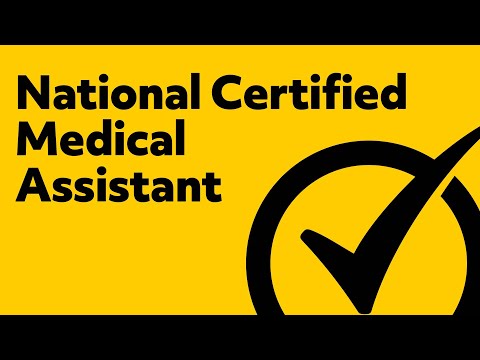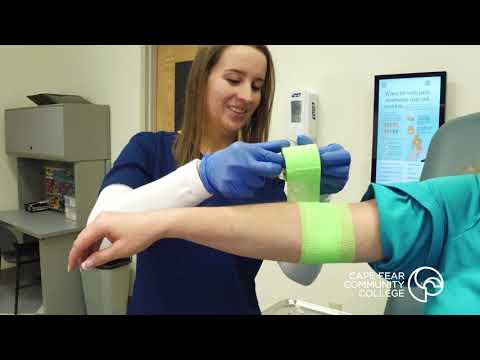Where Can Medical Administrative Assistants Work?
Contents
- In what industries can medical administrative assistants work?
- What are the duties of a medical administrative assistant?
- What skills are needed to be a medical administrative assistant?
- What are the educational requirements for medical administrative assistants?
- What are the job outlook and salary prospects for medical administrative assistants?
- What are the challenges faced by medical administrative assistants?
- What are the best practices for medical administrative assistants?
- What technology do medical administrative assistants need to be familiar with?
- What are the trends affecting medical administrative assistants?
- What are the opportunities for medical administrative assistants?
Employment of Medical Administrative Assistants is expected to grow much faster than the average for all occupations through 2024.
Checkout this video:
In what industries can medical administrative assistants work?
There are many opportunities for medical administrative assistants. They can work in a variety of settings, including hospitals, clinics, physician’s offices, and insurance companies. They may also work for the government or in research facilities. With experience, some medical administrative assistants may move into supervisory or managerial positions. Some may also become self-employed and work as medical transcriptionists or medical billers and coders.
What are the duties of a medical administrative assistant?
A medical administrative assistant is a key member of a medical office staff, providing clerical support and undertaking a wide range of administrative tasks. The duties of a medical administrative assistant vary depending on the size and type of medical practice, but may include greeting patients, scheduling appointments, handling patient inquiries, preparing and maintaining medical records billing and coding insurance forms, and transcribing doctors’ notes. In larger practices, medical administrative assistants may also be responsible for handling correspondence, scheduling surgeries and hospital admissions, and ordering office supplies.
What skills are needed to be a medical administrative assistant?
In order to work as a medical administrative assistant, certain skills are required. These skills include excellent communication, both written and oral, organizational skills, as well as the ability to multitask. Medical administrative assistants must also be proficient in using computers and various software programs. In addition, medical administrative assistants should have knowledge of Medical Terminology and be able to type accurately and quickly.
What are the educational requirements for medical administrative assistants?
An education is not required for employment as a medical administrative assistant. However, some employers prefer candidates who have postsecondary education, and many offer on-the-job training to those without formal education. Most medical administrative assistants have completed a postsecondary certificate or diploma program in medical administrative assisting. These programs usually last one year or less and cover topics such as medical terminology, office procedures, billing and coding, and computer applications. Some programs also include an internship in a medical office.
What are the job outlook and salary prospects for medical administrative assistants?
Medical administrative assistants are in high demand and the job outlook is very positive. The median salary for medical administrative assistants is $35,760 per year, and job growth is expected to be much faster than average at 19% from 2018-2028.*
There are many different places that medical administrative assistants can work. They can work in doctor’s offices, hospitals, clinics, or even insurance companies. Some medical administrative assistants may even work from home. The possibilities are endless!
If you’re looking for a stable career with good pay and plenty of room for growth, then a career as a medical administrative assistant may be right for you.*
*Data from the Bureau of Labor Statistics
What are the challenges faced by medical administrative assistants?
There are a number of challenges that medical administrative assistants face in their work. One of the most common is working with insurance companies. Insurance companies often have complex and ever-changing rules that can be difficult to keep up with. Medical administrative assistants must be able to understand and apply these rules in order to get patients the coverage they need.
Another challenge faced by medical administrative assistants is maintaining confidentiality. Medical administrative assistants have access to sensitive information, such as patients’ Medical records They must take care to keep this information confidential and only share it with those who have a need to know.
Medical administrative assistants also need to be able to handle a variety of tasks at once and stay organized. They might be responsible for scheduling appointments, maintaining medical records billing insurance companies, and answering phones. Being able to handle all of these tasks without getting overwhelmed is essential for success in this career.
What are the best practices for medical administrative assistants?
There are best practices that medical administrative assistants should follow in their daily work lives. These best practices help to ensure quality patient care and efficient office operations.
Some of the best practices for medical administrative assistants include:
-Answering patient phone calls promptly and courteously
-Scheduling appointments and maintaining calendars
-Filing and organizing patient medical records
-Billing and coding insurance claims
-Ordering office supplies and maintaining inventory levels
-Assisting with office administrative tasks as needed
What technology do medical administrative assistants need to be familiar with?
Medical administrative assistants must be familiar with medical terminology in order to transcribe doctors’ notes and populate patients’ electronic health records. They also use written communication to prepare bills and insurance forms.Because they work closely with patients, medical administrative assistants need interpersonal skills to answer questions and schedule appointments. They also collect copayments and work with health insurance companies to process claims.
To perform their duties, medical administrative assistants must be proficient in using Microsoft Office applications such as Word and Excel. Many medical offices also use electronic health records systems, so medical administrative assistants need to be comfortable working with these systems as well.
What are the trends affecting medical administrative assistants?
One of the most important questions facing medical administrative assistants is where they can work. With the ever-changing landscape of healthcare, it is becoming more and more important for medical administrative assistants to be aware of the trends affecting their field. Here are some of the most important trends that medical administrative assistants should be aware of:
1. The growth of telemedicine
2. The rise of artificial intelligence in healthcare
3. The increasing importance of compliance
4. The growth of alternative care models
5. The changing reimbursement landscape
What are the opportunities for medical administrative assistants?
Medical administrative assistants are in demand in a variety of settings, including hospitals, physicians’ offices, clinics, managed care facilities, and insurance companies. With experience, medical administrative assistants may advance to positions such as office manager, medical records administrator, or coding specialist. Some may also become self-employed as consultants or trainers.







